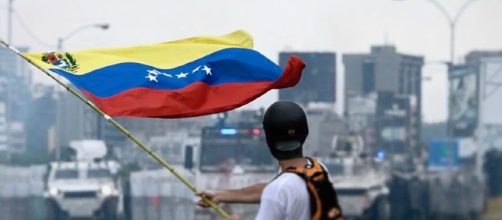CNN recently reported that the worsening Venezuela crisis has produced “unimaginable suffering” for its people, including higher food prices and hunger.
The report named the phenomenon the “Maduro diet,” taken from Venezuelan president Nicolas Maduro, since many people are choosing to skip meals. Malnourishment and inflation have drastically increased as well.
“There's also a fundamental human reason why we should care about what's happening in Venezuela: People there are enduring suffering that would be unimaginable to most of us,” the CNN report noted.
Because of the ongoing crisis, there are reported shortages on other basic goods, such as medicines and toiletries. The South American nation is finding it difficult to import products because the government itself is said to have insufficient funds because of corruption and mismanagement.
Venezuelans searching for food from trash becomes a common sight on the streets, the report noted.
What it means for the US
The deepening Venezuelan crisis also has repercussions for the United States. From the oil industry to issues about refugees, it is almost impossible to leave out the U.S. from this crisis south of the border.
The United States gets much of its oil supply from this nation, which has the world’s biggest oil reserves according to USA Today.
Because of the upheaval, gas prices in the U.S. can go higher thus, affecting the Wall Street.
The Trump administration has imposed more sanctions over Venezuela to deal with these issues, the news article noted further.
Refugees, democracy
The crisis in the South American nation has been running for several months now. The news article suggested a “domino effect” that will have repercussions to refugees that seek to enter the U.S. borders.
According to USA Today, the crisis has caused unemployment, inflation and food shortages that people had no choice but to seek refuge into the borders.
CNN also pointed out that as of this year, more than 20,000 refugees are seeking asylum inside the North borders.
The Trump administration has reportedly issued travel bans, regulating immigration and travel from the South toward their borders.
The chaos happening around the Latin nation has also decreased interests for business investments and tourism, the article added further. It noted that the U.S. has played a huge role in establishing democratic institutions in Venezuela over the years, but the crisis might just reportedly create anti-American sentiments, movement and campaigns.


